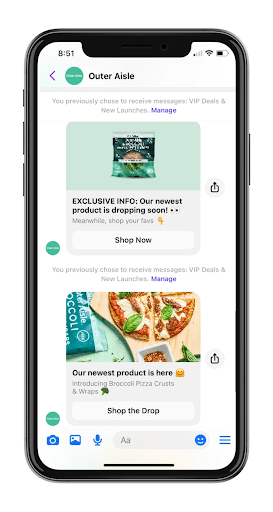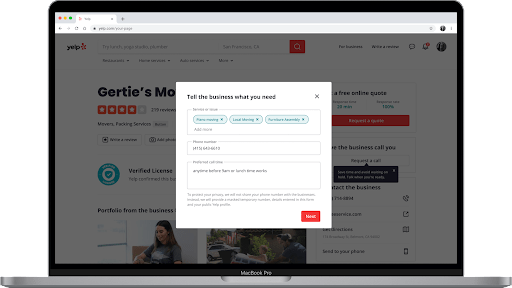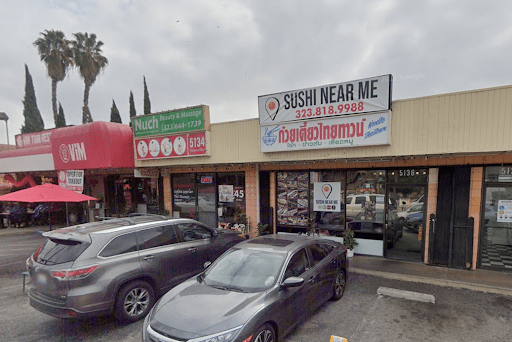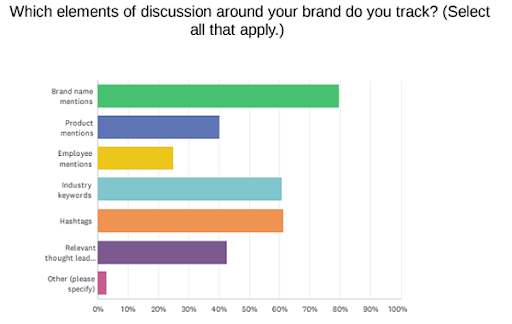The TikTok Search Revolution: How Gen Z is Transforming Online Discovery
Local Memo: Meta Switches Up Business Messaging with Proactive Feature
In this week’s update, learn about Meta’s new proactive messaging; Yelp’s new request a call feature; the passing of SEO legend Bill Slawksi; a decline in the effectiveness of “near me” optimization; the key platforms for social listening; and Meta’s efforts to create a safe environment for users and businesses.
Meta Switches Up Business Messaging with Proactive Feature
Last week Meta held Conversations, its first-ever conference devoted to messaging. At the conference, the company announced a new feature that may bring about a significant shift in the usage of Messenger by businesses. The feature is called Recurring Notifications, and it allows businesses to send “proactive, automated messages” to “people who have opted in to receiving them.”
Users can opt in to receive messages on a regular schedule, such as weekly updates regarding new product launches. The feature will support many types of content including updates and newsletters, with frequency settings ranging from daily to monthly. Meta intends to begin charging for the feature after a free trial period when businesses are invited to try it out.
Recurring Notifications represents a significant shift away from the restrictions that have long been in place for Messenger, where businesses were only permitted to send one unsolicited message to a given user, and then only if the user had previously initiated a conversation.

Image courtesy Meta
Yelp Launches Request a Call Feature
Yelp has launched a new Request a Call feature, designed to help service businesses capture leads. Users send requests to the business for the service they want performed, and may include a preferred call time; the business can either accept the requested time or suggest another. These requests appear in the business’s Yelp for Business inbox. For privacy, Yelp creates a special phone number for these interactions which is protected by a PIN. Businesses can opt in to enable the feature, which is currently available on desktop with support for Android and iOS coming soon. Yelp says the feature follows on the success of Request a Quote, first launched in 2016.

Image courtesy Search Engine Land / Yelp
Tributes Pour In for SEO Legend Bill Slawski
We in the SEO community were saddened to hear of the passing of Bill Slawski last week. Many, many tributes have been showing up on Twitter and elsewhere since the announcement, acknowledging Slawski’s decades of work as a trusted and generous expert. Slawski’s specialty was Google patents. In addition to his work as Director of SEO Research at Go Fish Digital, Slawski wrote dozens of posts at his SEO by the Sea blog analyzing the details of Google patents related to search. A prolific author, Slawski even published three new posts just this month. The last of these, from May 13, is about associating subjective attributes to entities by gathering information from reviews, online comments, playlists, and other sources. Slawski’s body of work will remain a treasure trove for years to come and is highly recommended to anyone who wants to understand the nuts and bolts of search. Our condolences go out to Slawski’s family and the many people who counted him as a friend.
No, It Doesn’t Help (Anymore) to Have “Near Me” in Your Business Name
In a post on Search Engine Land, Chris Silver Smith offers insight on the recent decrease in effectiveness of optimizing for the phrases “near me.” Google reported earlier this year that the phrase’s usage in search was up 400% from the previous year, and this increased popularity would tend to suggest that the tactic of optimizing for the phrase “near me” would be more useful than ever. In the past, it has been possible to see gains in search traffic by creating web pages optimized for the phrase, and companies have even gone so far as to make use of business names like “Dentist Near Me” and “ER Near Me” to capitalize on the popularity of the phrase in search. But Google has since made a change that deliberately excludes “near me” from consideration as a search term, even going so far as to ignore exact matches to the business name for phrases like “ER near me.” Interestingly, there does still seem to be some ranking benefit for the phrase in organic search, but not in local results. Smith believes this is a long overdue acknowledgment on Google’s part that the phrase “near me” is meant to describe proximity and should not be interpreted otherwise.

Image courtesy Search Engine Land
Key Platforms for Social Listening
A research report conducted by Social Media Today in collaboration with Meltwater asked 650 social media professionals about the platforms that matter most for social listening. The experts agreed that brands can learn the most about consumer sentiment by paying close attention to Twitter, Facebook, and Instagram, with other platforms including LinkedIn, YouTube, Reddit, and TikTok filling out the rest of the list in order of popularity. The report notes that Twitter has the most open platform and is therefore the easiest to monitor. The three most important things to track are brand name mentions (tracked by 80% of brands), hashtags, and industry keywords, followed by relevant thought leadership, product mentions, and employee mentions.
Promotion of thought leadership by individuals representing a brand is called out in the report as an opportunity, with research suggesting that when brands showcase internal experts, they do a better job of attracting decision makers.

Courtesy Social Media Today
Meta Promotes Safety for People and Businesses
Meta has released a Community Standards Enforcement Report for Q1 2022, produced in collaboration with independent firm EY. The report finds that hate speech has declined on the platform to 0.02% (2 views of content within every 10,000 views), down from 0.10-0.11% when the metric was first reported in Q3 2020. Hate speech on Instagram, also coming in at 0.02% for Q1 2022, has been more consistent in recent quarters.
The company is rolling out additional controls by which brands can indicate preferences about the kind of content they want their ads to appear alongside. These are referred to as Brand Safety & Suitability Controls and include oversight from independent auditors such as the Media Rating Council.
The report claims that Facebook took action on 1.8 billion instances of spam content in Q1 2022, up from 1.2 billion in Q4 2021. During the same period, Facebook removed 21.7 million items that contained violence or incitement, up from 12.4 million in the previous quarter. On Instagram, 1.8 million pieces of drug content were removed, up from 1.2 million in the previous quarter. Meta attributes most of these increases to improvements in its proactive detection technology.




